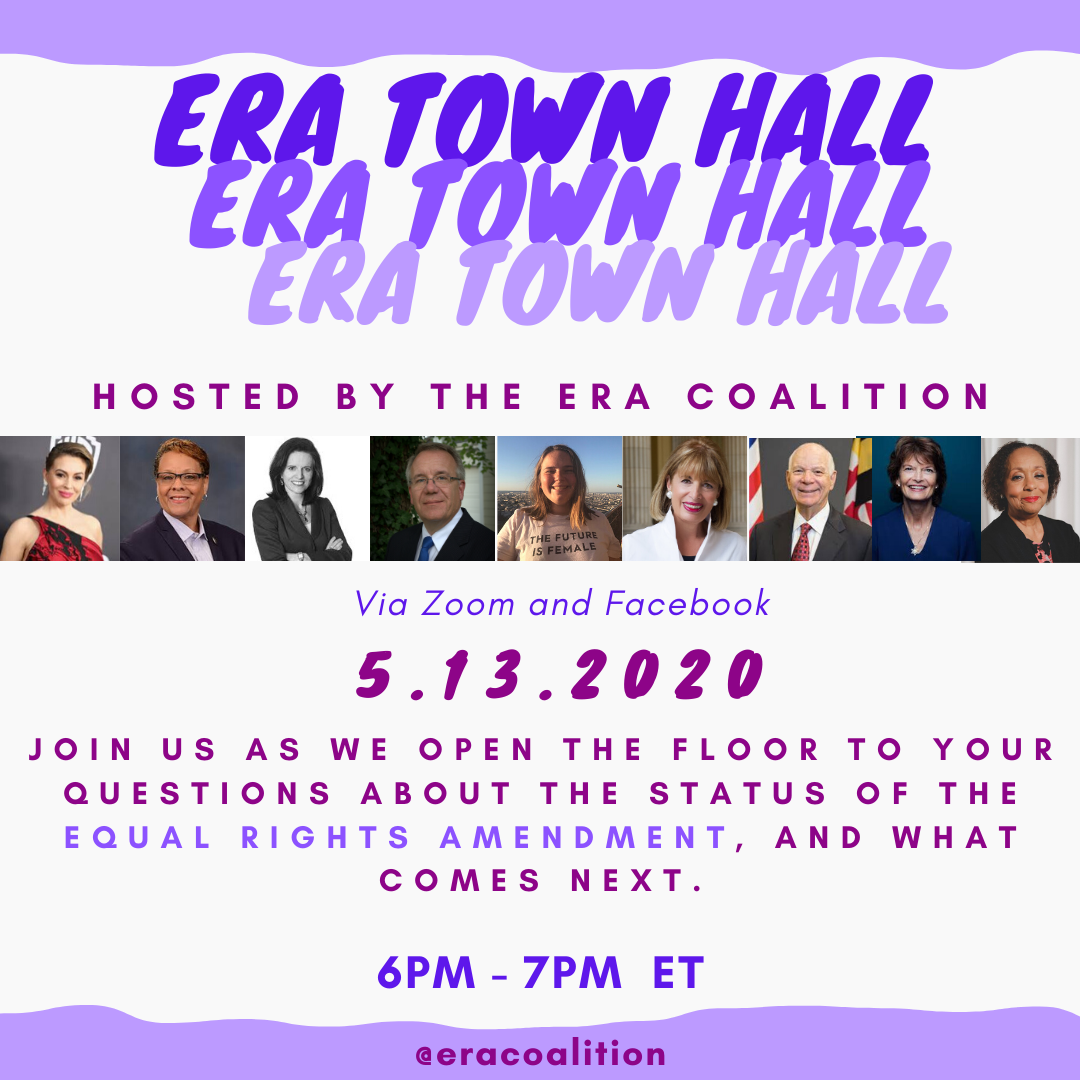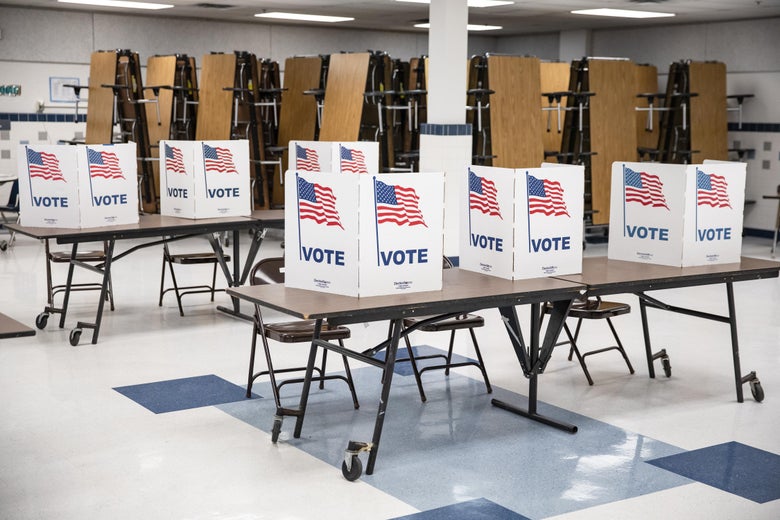Join the ERA Coalition on tonight for the first of a series of virtual ERA Town Halls, at 6:00 pm ET. Confirmed participants include: Actor/ERA Activist Alyssa Milano, Nevada Senator Pat Spearman, Linda Coberly, Chair, ERA Coalition Legal Task Force, Former Illinois State Representative Steve Andersson, Rosie Couture, Executive Director of Generation Ratify, Congresswoman Jackie Speier (D-CA), Maryland Senator Ben Cardin, Alaska Senator Lisa Murkowski (by video), and our CEO and Co-President, Carol Jenkins will be moderating! ![]() The first 100 registrants will be provided a link the day of the event inviting them to join the Zoom Webinar and have the opportunity to interact directly with the panelists. You can register at the link in bio or https://bit.ly/3cgspvP we’ll also stream live right below thanks to the Facebook live stream! Spread the word and share this post!
The first 100 registrants will be provided a link the day of the event inviting them to join the Zoom Webinar and have the opportunity to interact directly with the panelists. You can register at the link in bio or https://bit.ly/3cgspvP we’ll also stream live right below thanks to the Facebook live stream! Spread the word and share this post!
As my readers know, the ERA is very important to me and has been since the time of growing under the ridiculous rhetoric of Phyllis Schlafly. Schlafly was famous making up Straw Man Arguments against the ERA. None of her arguments phased me. I lived in Europe with coed toilets, and the military is already considering requiring girls register for the Selective Service. What’s more, twenty-five states already have a state-wide Equal Rights Amendment of some form, and none of the fallacious arguments Schlafly claimed to come to pass ever manifested.
Since I was brought into the ERA fight in Virginia in 2017, soon after it was passed in Nevada, I have been going down to Richmond to fight for its passage, as well as lobbying my friends in Illinois to pass it there. Having been in the trenches, I was avoiding seeing the new Mrs. America series because I didn’t want to relive the horrors of Schlafly’s insanity. But I recently decided it was best to know thine enemy. So, I have been watching.
The truth is, much of the history of the ERA is actually centered in Illinois. Steve Andersson got it passed in Illinois to make Illinois Thirty-Seven, right behind Virginia’s Thirty-Eight. Illinois was also the home of Phyllis Schlafly, who was instrumental in preventing Illinois from passing it until 2018. What makes that passage all the more ironic though is that Schlafly, a conservative who’s ideas on international politics weren’t so absurd became such a champion of the No ERA movement. Yet it took a Republican, Rep. Andersson, to put things right in the Land of Lincoln, the first, great Republican.
But, what astounds me is, since Schlafly became a lawyer, was she not familiar with Bradwell v. The State? In that 1867 case, contemporaneous with the Fourteenth Amendment. On the docket, Myra Bradwell sued the state of Illinois, yes, Illinois, for the right, under the Fourteenth Amendment, to practice law in the state. The US Supreme Court denied her this right, more or less implying she was not a citizen and therefore not qualified for equal protection under the law.
While this case seems archaic, it should be pointed out that since that time a number of cases have refined the Supreme Court’s position on women to bring it more in line with our modern interpretation of women as equal citizens. However, we need only look at 2007’s Ledbetter v. Goodyear. In that case, the Supreme Court ruled that protection from pay discrimination against women was not protected by the Constitution and therefore Lilly Ledbetter was not entitled to sue for lost wages. Congress finally stepped in to pass a Statute to protect women, but women remain unprotected by the stronger Constitutional authority to this day. Which is to say, there are some weak protections for women but there are no strong, constitutional protections like there are for race.
The biggest issue is with Legal Constructionism. Under that doctrine, jurors try to intuit the intention of the author of a Constitutional element and apply it to the modern day. They eschew any more recent interpretation of the Constitution. Thus, one need only consider Bradwell v. The State to see the authors of the Fourteenth Amendment never intended to include women under it, and therefore, a Constructionist juror will likely derive precedent based on the 1867 ruling rather than any more modern ruling. The danger, therefore, is that most of the Supreme Court is made up of Constructionists, meaning we need the ERA now more than ever.
I hope you’re convinced now why we need the ERA, and please watch below to see the next steps to how we shall make it the Twenty-Eighth Amendment to our Constitution.
Town Hall
Posted by ERA Coalition on Wednesday, May 13, 2020
I hope you enjoyed the live stream, ladies and gentlemen and let’s work together to get her equal rights and make sure that equal means equal.



